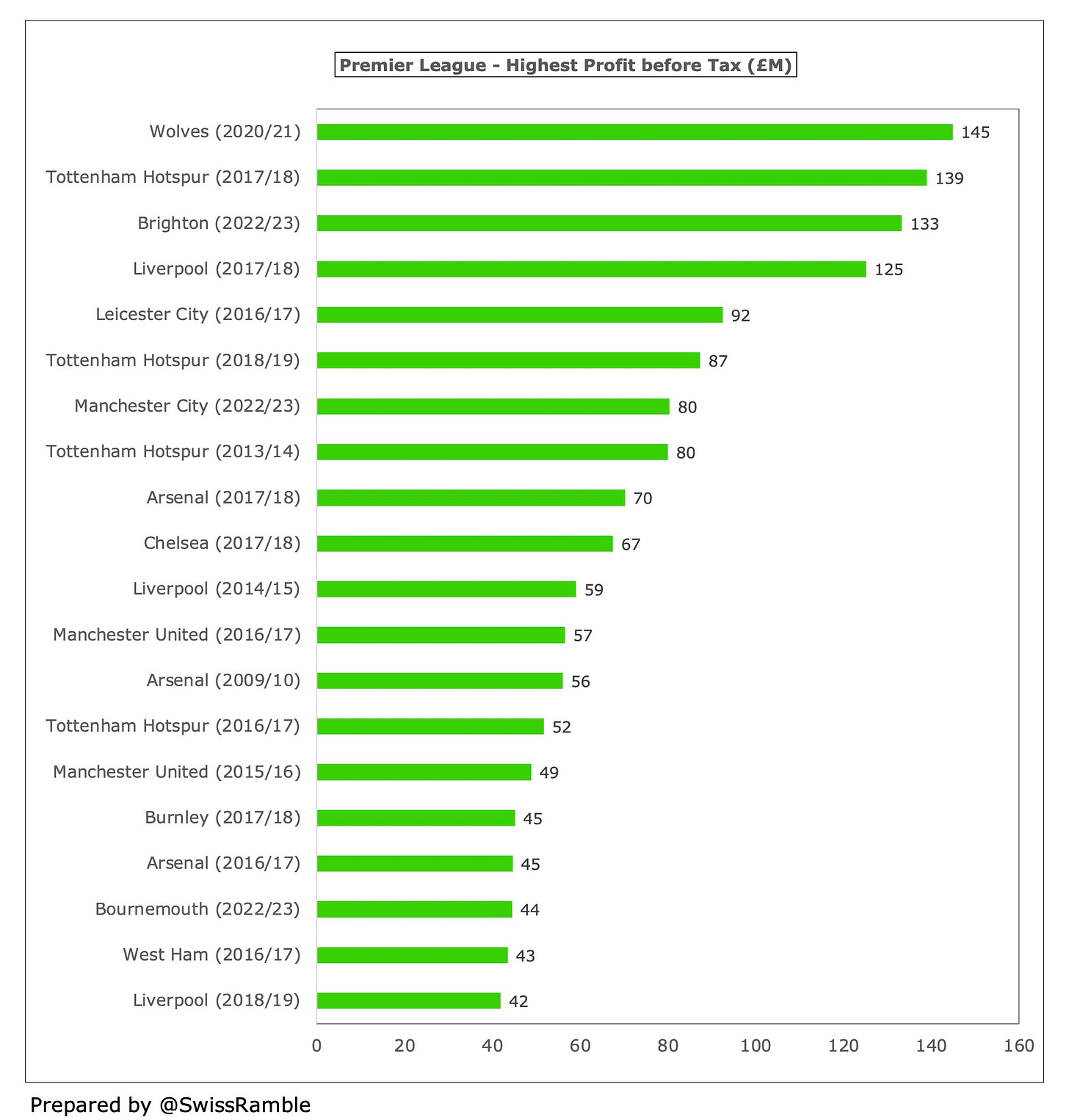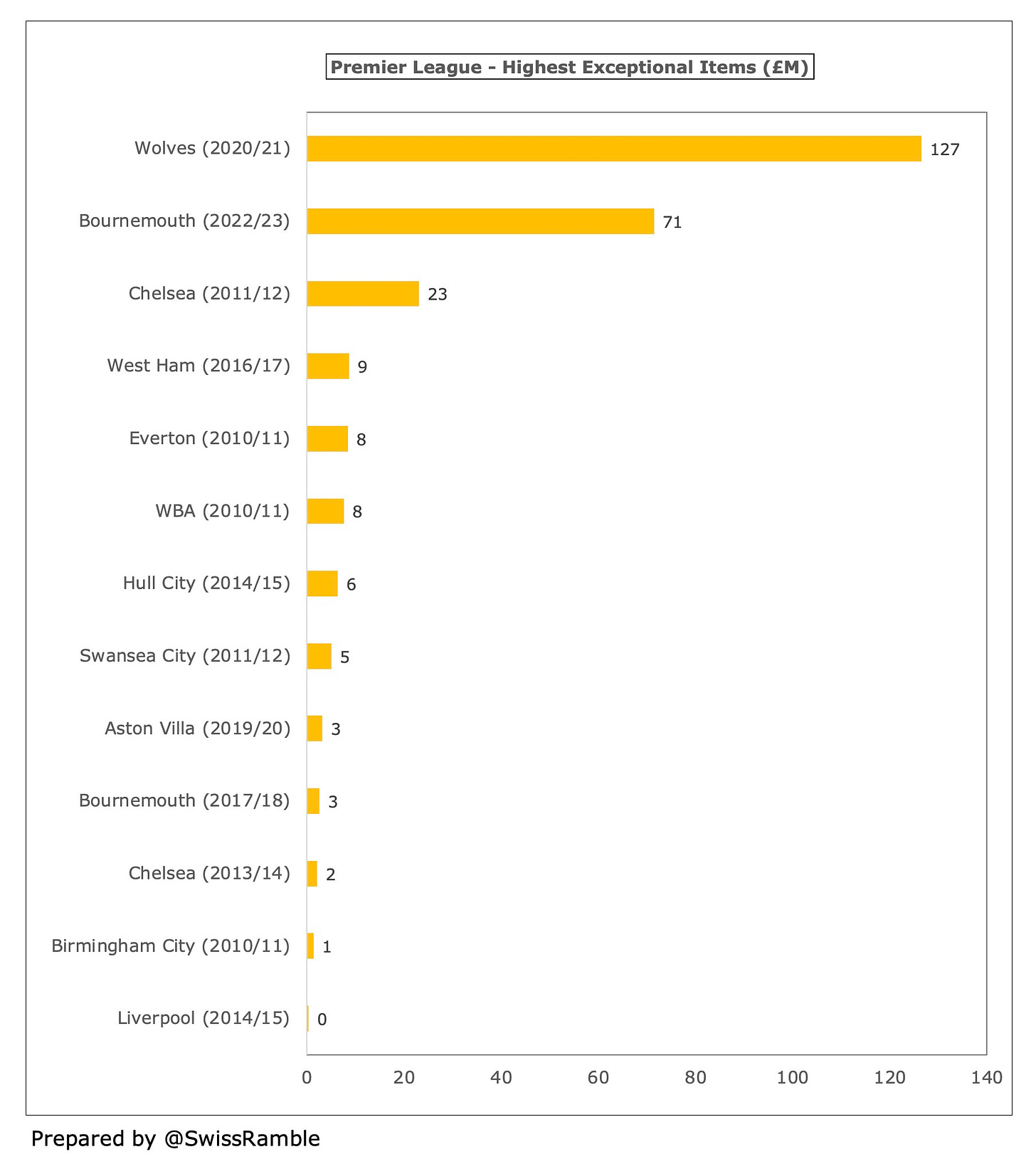As the new Premier League season is about to kick-off, I thought that it might be interesting to take a look at the financial records in England’s top flight, covering almost all the metrics you could think of.
Some of the rankings will highlight the relative importance of different factors to the business models employed by various clubs, e.g. some might focus more on player trading, while others rely on tight cost control.
Caveats
I have restricted this analysis to the 14 seasons from 2009/10 to 2022/23, as the figures tend to be smaller before then, so are not likely to be relevant for this exercise.
Furthermore, no consideration has been made for inflation, so many of the highs will have been set in more recent years, though, as we shall see, that is not always the case.
Categories
Okay, now that the health warnings are out of the way, we will look at the records for each of the following categories:
Profits (and losses)
Revenue – including each revenue stream
Expenses – including wages, player amortisation, depreciation and other expenses
Transfers – gross spend, net spend
Squad cost
Debt – financial debt and transfer debt
Profit before Tax
In the history of the Premier League, four clubs have reported a pre-tax profit above £100m, namely Wolves £145m (2020/21), Tottenham £139m (2017/18), Brighton £133m (2022/23) and Liverpool £125m (2017/18). They were followed by Leicester City £92m in 2016/17, which was the season when the Foxes reached the Champions League quarter-finals.
It’s worth noting Tottenham’s good track record in terms of profitability, as they have made three of the top eight profits, though it’s a while since they “troubled the scorers”.
Exceptional Items
However, a couple of the high profits have only been achieved thanks to significant exceptional items, especially Wolves £127m (2020/21) and Bournemouth £71m (2022/23), which represented the write-off of owner loans.
Keep reading with a 7-day free trial
Subscribe to The Swiss Ramble to keep reading this post and get 7 days of free access to the full post archives.






